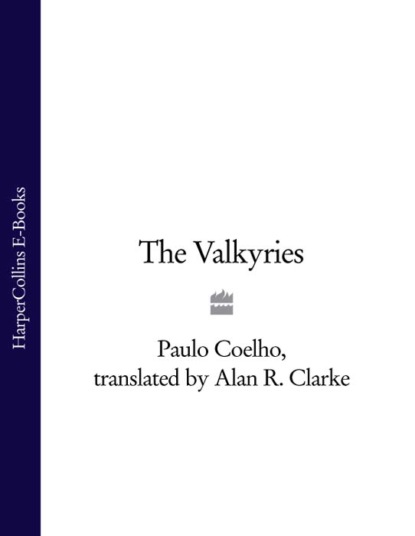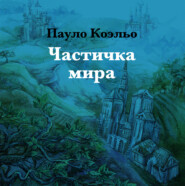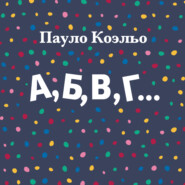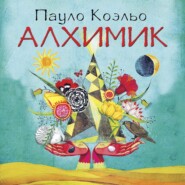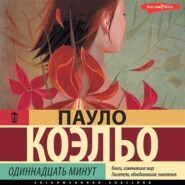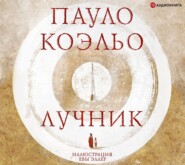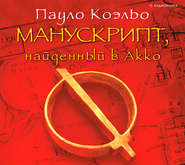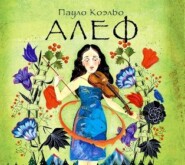По всем вопросам обращайтесь на: info@litportal.ru
(©) 2003-2024.
✖
The Valkyries
Автор
Год написания книги
2019
Настройки чтения
Размер шрифта
Высота строк
Поля
There was an inscription written in longhand: “For J., the alchemist who knows and uses the secrets of the Great Work.”
Paulo had anxiously awaited this moment. He had been able to keep completely secret the fact that he was writing a new book, even though he knew that J. had really liked his previous book.
“This is the original manuscript,” Paulo continued. “I’d like you to read it before I send it to the publisher.”
He tried to read the expression in his master’s eyes, but they were impenetrable.
“I have meetings all day tomorrow,” J. said, “so I’ll be able to read it only at night. Let’s have lunch two days from now.”
Paulo had been expecting a different reaction. He thought that J. would be happy, and moved by the inscription.
“Let’s do that,” said Paulo, hiding his disappointment. “I’ll be back in two days.”
J. called for the check. They walked silently to the elevator. J. pushed the button for the eleventh floor.
When the elevator stopped at his floor, J. pushed the Emergency button to hold the door open. Then he approached Paulo and said, “May the Lamb of God protect you,” making a sign on the forehead of his disciple.
Paulo embraced his master and said good night. Resetting the button, J. stepped out of the elevator.
“Why didn’t you make copies of the original?” he asked, as the door began to close.
“In order to give God the chance to make it disappear, if that was his will.”
“Wise decision,” Paulo heard J. say as the door closed. “I hope that the literary critics never discover where it is.”
They met two days later, at the same restaurant.
J. began, “There are certain secrets of alchemy described in your book. Secrets I never discussed with you. And you presented them quite correctly.”
Paulo was delighted. This was just what he wanted to hear.
“Well, I’ve been studying,” he explained.
“No, you haven’t been studying,” J. said. “Yet what you’ve written about is correct.”
“I can’t fool him,” Paulo thought. “I’d like him to think I’m dedicated, but I can’t fool him.”
He looked outside. The sun was glaring, and the beach was crowded.
“What do you see in that immense sky?” J. asked.
“Clouds.”
“No,” J. said. “You see the soul of the rivers. Rivers that have just been reborn in the sea. They will rise to the sky, and remain there until, for whatever reason, they once again become rain and fall to earth.
“The rivers return to the mountains, but carry with them the wisdom of the sea.”
J. poured himself some mineral water. He didn’t usually drink during the day.
“That is how you discovered those secrets we had never discussed,” J. said. “You are a river. You have already run down to the sea, and you know its wisdom. You have died and been reborn many times. All you have to do is remember.”
Paulo was happy. It was a kind of praise: His master said that he had “discovered secrets.” But he was unable to ask openly which secrets they were.
“I have a new task for you,” J. said. Silently, he thought, It has to do with your book. Because I know it’s very important to you, and it doesn’t deserve to be destroyed. But Paulo didn’t need to hear about that.
One week later, J. and Paulo walked together through the airport. Paulo wanted to know more about the task that his master had assigned him the week before, but J. carefully avoided conversation. They sat down at a table in the cafeteria.
“We were able to have dinner together only twice during my stay here in Rio,” J. began, “and this is our third. It’s in observance of the saying ‘Anything that occurs once can never occur again. But, should it happen twice, it will surely happen a third time.’”
J. was trying to avoid the subject, but Paulo persevered. He knew now that his master had liked the book’s dedication, because he had overheard a conversation between J. and the receptionist at the hotel. And later, one of J.’s friends had referred to Paulo as “the book’s author.”
He must have told a number of people about it—there was, after all, only one copy of the original. Vanity of vanities, he said to himself. He thanked God for having given him a master so human.
“I want to ask you about the task,” Paulo said once again. “I don’t want to ask ‘how’ or ‘where,’ because I know you won’t tell me.”
“Well, that’s one thing you’ve learned in all this time,” J. laughed.
“In one of our conversations,” Paulo continued, “you told me about a man named Gene, who was able to do what you are now asking of me. I’m going to look for him.”
“Did I give you his address?”
“You mentioned that he lived in the United States, in the California desert. It shouldn’t be too hard to get there.”
“No, it isn’t.”
As they spoke, Paulo became aware that the voice on the public address system was continually announcing flight departures. He began to feel tense, fearing there wouldn’t be enough time to complete their conversation.
“Even though I don’t want to know ‘how’ or ‘where,’ you taught me that there is a question we should always ask as we undertake something. I’m asking you that question now: Why? Why must I do this?”
“Because people always kill the things they love,” J. replied.
As Paulo pondered the mystery of this answer, once again he heard a departure announced.
“That’s my plane,” J. said. “I have to go.”
“But I don’t understand your answer to my question.”
Asking Paulo to pay the bill, J. quickly wrote something on a paper napkin.
Placing the napkin on the table in front of his disciple, J. said, “During the last century, a man wrote about what I’ve just said to you. But it’s been true for many generations.”
Paulo picked up the napkin. For a fraction of a second, he thought it might contain a magic formula. But it was a verse from a poem.
And each man kills the thing he loves,
By all let this be heard,
Some do it with a bitter look,





